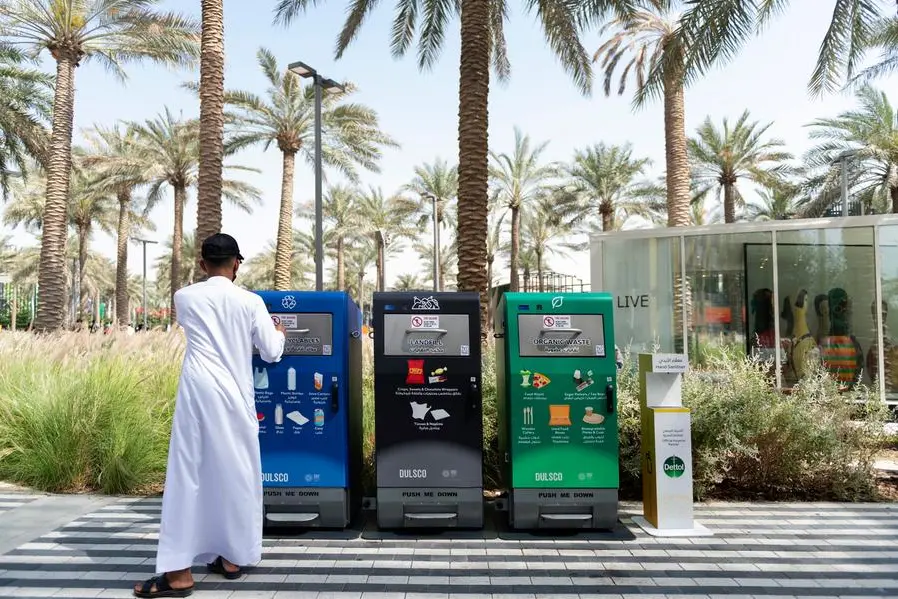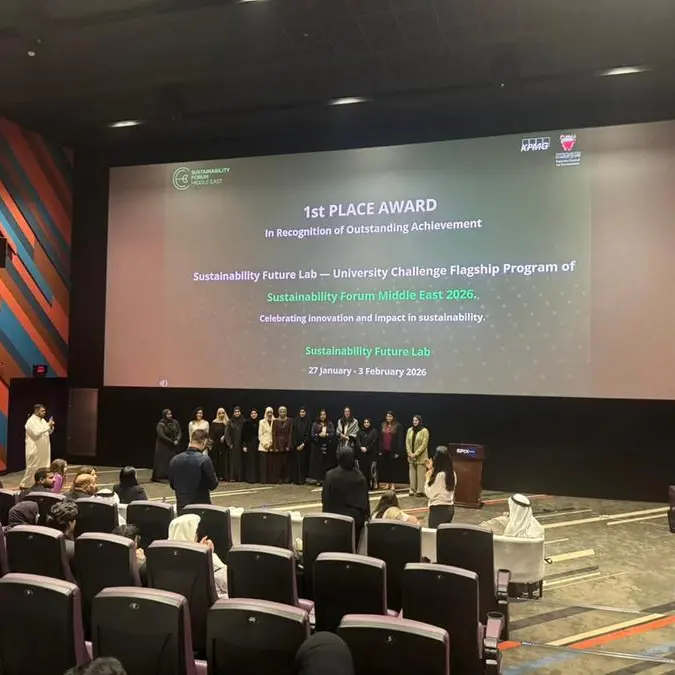PHOTO
As Expo 2020 Dubai draws to a close, it has set a high bar for future global events, having delivered the most sustainable World Expo ever, diverting maximum waste away from landfill with help from PepsiCo, Official Beverage & Snack Partner of Expo 2020 Dubai; Dulsco, Official Waste Management Partner of Expo 2020 Dubai; and Cisco, Expo 2020 Dubai’s Official Digital Network Partner.
The first World Expo to be held in the Middle East, Africa and South Asia (MEASA) region and the largest event ever in the Arab world set itself a number of sustainability targets to be met during its creation and staging, including diverting 85 percent of waste from landfill, through different waste treatment facilities and innovative solutions provided by Expo and its partners.
Of more than 1.1 million tonnes of waste that Expo 2020 Dubai generated, up to and including the six months of the event, including the construction and the event operations phase, it successfully diverted 90.9 per cent cumulative waste from landfill, while enhanced messaging, communication and engagement saw a marked increase in recycling practices by Expo 2020 Dubai’s millions of visitors.
Dina Storey, Director – Sustainability Operations, Expo 2020 Dubai, said: “As the issue of climate change becomes more pressing, we are proud that Expo 2020 Dubai has provided a powerful, collaborative platform to connect innovators and share sustainable, tangible solutions. By working together with our partners, we have not only exceeded our waste target, but we have also highlighted a range of sustainability initiatives that have had – and will continue to have – real impact in helping to create a cleaner world.”
Event-time activations included PepsiCo’s 28 Aquafina® water stations advocating the use of reusable bottles, its branded reusable bottles available for sale and its innovative, infinitely recyclable Aquafina aluminium water cans, as well as 40 sabeel drinking-water fountains located around the site. In addition, the use of smart bins delivered by Dulsco, engaged visitors to ‘recycle better’, leading to proper segregation methods and a higher separation rate of waste.
The collaborative strategy helped reduce the use of single-use plastics across the site, with the number of 500ml bottles saved thanks to the Aquafina water stations topping 500,000. Cans, the majority of which were PepsiCo’s Aquafina cans, collected in Dulsco’s smart bins and then recycled through Dulsco into new aluminium products – saved the equivalent of 6.6 million bottles.
Expo 2020 Dubai also worked with Dulsco to reduce, reuse, repurpose and recycle waste created at the event under Dulsco’s Waste2Resource initiative, which reimagined waste as a raw material. End products included the use of glass to manufacture glass lamps, use of plastic bottles to manufacture T-shirts, the use of construction waste to create temporary road structures and transforming waste into a Refuse Derived Fuel (RDF) to generate energy.
To further reduce the carbon footprint, biofuel-powered Dulsco trucks and electric vehicles transported waste to Dulsco’s Central Waste Facility, built on-site specially for the event to streamline an efficient recycling and recovery process.
On top of this, and in an exclusive first for Expo 2020 Dubai, PepsiCo’s popular snack Sunbites® was available in fully compostable, plant-based packaging, boasting a lower greenhouse gas footprint and a more environmentally friendly production line.
Eugene Willemsen, CEO, Africa, Middle East and South Asia, PepsiCo, said: “The Expo 2020 Dubai partnership has been a major milestone in PepsiCo’s journey in the UAE, cementing our commitment in a region we’re proud to have served for the last six decades. We set out with a shared vision for a fun and sustainable future during and beyond this World Expo, and we’re incredibly proud to have played a part in delivering on this vision.
“Expo 2020 Dubai has given us the platform to truly bring the best of our pep+ vision to life. Innovations like the Aquafina cans, Aquafina water stations and Sunbites compostable packaging, which we piloted at Expo 2020 Dubai, have helped minimise the plastic footprint on site, offered consumers more sustainable alternatives, and helped us reduce, recycle, and reinvent – pillars we consider essential to help drive a circular economy.
“We have always maintained that one company or individual cannot drive the change needed alone. Expo 2020 Dubai has brought stakeholders at the local, regional, and international level together to effect change at a systemic level and given us the opportunity to showcase that the future of the F&B industry is anchored in responsible, purposeful innovation that can help chart a new course for the planet and its people.”
David Stockton, CEO of Dulsco, said: “We are immensely proud to have provided innovative waste management solutions and infrastructure to contribute to making Expo 2020 Dubai the most sustainable World Expo to date. To do this, we rolled out many innovative solutions, where all Dulsco facilities worked concurrently to provide holistic waste management and recycling services, transforming throw-away products into valuable materials for re-sale, contributing to a circular economy.
“Enabled by the power of technology, our facilities helped us sort multiple waste streams, maximising our ability to reinvent, reimagine, repurpose and reuse waste from Expo 2020. We have been honoured to collaborate with Expo stakeholders to highlight the collective responsibility we share in embedding environmental sustainability into our work, lives and future.”
Other partners helping Expo 2020 Dubai reach its waste target include the Ministry of Climate Change and Environment and Emirates Foundation, supporters of the Expo 2020 Dubai Food Rescue Programme, in collaboration with Cisco, Expo 2020 Dubai’s Official Digital Network Partner. Their food-waste initiative has cut food loss and wastage at the event, by monitoring of food operations at the Expo site’s restaurants, food halls and staff canteens to ensure they adhered to the highest sustainability criteria in food preparation.
Such was the success of the programme, which also empowers the distribution of surplus to those in need via a collaboration with the UAE Food Bank, that the partners are looking to adapt it for use in a wider nationwide food waste initiative.
-Ends-




















